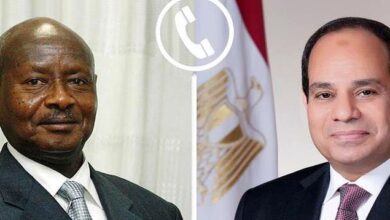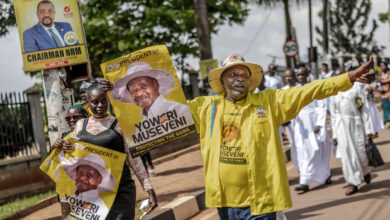Markets in the southern Sudanese city of Juba saw an unexpected boom with the kick off of Sudan’s week-long secession referendum which started on Sunday.
One of the most famous clothes markets in the city was thriving as hundreds of reporters and observers flocked to the city in heavy clothes but were surprised to find the weather extremely hot.
Reporters and observers swarmed to the market seeking summer clothes, T-shirts and hats to protect them from the sun. The high demand for summer products increased prices threefold.
Since Juba's small hotels offer accommodation on a bed and breakfast basis, supermarkets in the areas also saw a high demand for food, all of which is imported from Uganda.
The communications sector was also doing well as reporters and media personnel bought charge cards for their mobile phones to compensate for the lack of equipment for proper press coverage of the key referendum.
For transportation, reporters are resorting to local motorbikes driven by young Sudanese children who often do not drive very safely.
Others opt for luxury cars with the fee in this case largely depending on an agreement between the driver and the passenger. The average fare for one ride is US$10.
Juba's residents recognize that this period of boom is only temporary and will last only as long as the referendum itself. However, they hope that the coming years will help the south to flourish as investments in the fields of petroleum, agriculture and mineral resources increase after secession.
Uganda is one of the countries that will benefit the most from the separation of the south, since most of the south’s trade is based on imports from Uganda–which totaled US$5 billion last year alone.




